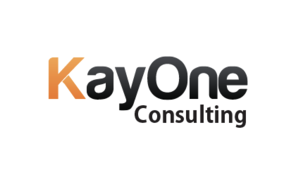What is Virtual CFO: Coverage, Benefits, and Costs
Have you ever wondered what is Virtual CFO? As you start a business, you must learn how to balance your finances and drive and reach your business goals. Most CEOs agree that operating finance and business needs aren’t easy. As a result, your earnings multiply, along with the challenges of managing cash flow and paying corporate taxes.
The job of a bookkeeper is only limited to recording your business transactions and creating financial statements for you to interpret. These reports are essential to measure and incorporate your historical financial data into the business KPIs.
However, analyzing and interpreting the revenue reports can be tricky, especially if you’re flipping through balance sheets and income statement pages. If you’re having difficulty interpreting your business’s revenue reports, an outsourced CFO can help. But what is Virtual CFO, and why does your business need one?
What is a Virtual CFO: Who Are They?
Small and big companies struggle financially because of mismanagement. A virtual CFO may be the right person to seek if you’re a startup or small company. But how do you start? As the saying goes, “Finance begins where accounting ends.”
A virtual chief financial officer is a financial consultant who produces detailed reports on financial insights. They create scenarios using benchmarks and revenue models. With the summarized reports, you and your CFO can consistently find solutions for managing your business needs.
Meanwhile, a VCFO has the same service offerings while working remotely through phone and video calls and mostly is a part-time role. These CFOs are frequently seen working with small businesses and startups.
Virtual CFO benefits are many-fold, especially since the COVID-19 pandemic hit. One of the top priorities of CFOs to date is risk management. With digital transformation, CFOs and finance play a significant role in utilizing technology to suggest improvements in the business world. These improvements create a driving force to increase efficiency and growth.
What is a Virtual CFO: What Do They Do?
A CFO gathers accurate and relevant financial data to execute the best business decisions in the areas of financial planning, cash flow forecasting and cloud accounting. Simply put, a CFO works with your accounting team to ensure you get the correct information for decision-making. An accountant creates income statements and balance sheets, and the CFO interprets the data and recommends improvements to your business.
- Are you reaching your business goals?
- Are you spending more than earning?
- Are the financial processes efficient for the size and nature of business?
- What type of investment strategy should your business focus on to increase profit?
- Financial analysis of your business
- Help business owners make sense of data
Depending on your business goals, these are some of the questions your CFO may answer.
Most people prefer hiring Virtual CFO roles due to their flexibility and alternative work arrangements. You will gain a lot of information since these CFOs have more experience handling different types of companies. These virtual CFOs offer to help business owners make sense of their data at a fraction of the cost of a full-time CFO.
Why Should You Hire One?
Since you know what a Virtual CFO is, it’s time to understand when to hire financial professionals for your business and the benefits of a virtual CFO. After understanding your business goals, your VCFO will focus on five key concepts:
Creating your business
Every small or big company should have a budget to measure its finances correctly. If you have no business budget, you’re walking on quicksand. Because at any minute, your situation can go out of control. In corporate terminology, if the situation worsens, you may not have enough cash to pay your employees, vendors, and taxes.
A virtual CFO services provider will first understand the source of the problem and analyze the business goals using financial analysis. Then, present financial information to business owners to meet KPI and business goals.
Tracking budget variances
Having a business budget is just the start of corporate success. Now, you need to follow and maintain the expenses with the help of your virtual CFO.
The CFO is an experienced financial professional who will provide a monthly variance analysis that reports the planned budget versus the current business expenditures. Through this report, you can identify if you’re overspending or underspending and if these costs can ensure you can reach your business objectives.
Cash flow management
Cash management is quite complex. You need to consider a few factors, such as taxes and employee salaries, to name a few. When the tax dues come, some owners panic because they mismanaged the cash funds. Always keep aside a portion of the business’s cash to prepare for unexpected events such as a decline in revenue or an economic downturn.
The Virtual CFO can help manage your profit and project any business cash flow needs to ensure your corporation has enough cash to cover minor or significant expenses. Besides this, they predict potential risks that may impact your cash flow by creating strategies to collect some money for your business.
Besides a VCFO’s responsibilities and high skills, they can also assist you in financing your business through loans, credits, or grants. It’s to ensure your business keeps running and you never run out of cash to operate the company.
Measuring Key Performance Indicators (KPIs)
A Chief Financial Officer (CFO) measures and analyzes your business goals and determines the critical KPIs for your business. For example, every business’s goal is to increase one’s profit. One solution to this goal is to improve customer retention or satisfaction. But how?
Let’s say customer retention is the KPI for your business. One suggestion to increase customer retention is to be open to feedback and understand what the customers want to gain in your business. If you’re able to improve it, your business revenue will follow.
Strategic decisions
In every business, you need to make decisions in difficult and stressful situations. Before deciding, you need a reliable financial partner to help you understand the implications of your business decisions.
Concluding Thoughts
Always remember that for any decision-making process, you must consider your business’s financial reports. You will risk making ill-advised decisions if you don’t understand the financial story.
A Virtual CFO can advise you on effectively managing and building your finances through strategic planning and cost control. Even if your company is a startup or a small business, hiring a CFO who can give you the right financial decisions for your business needs is essential.




